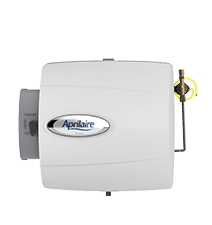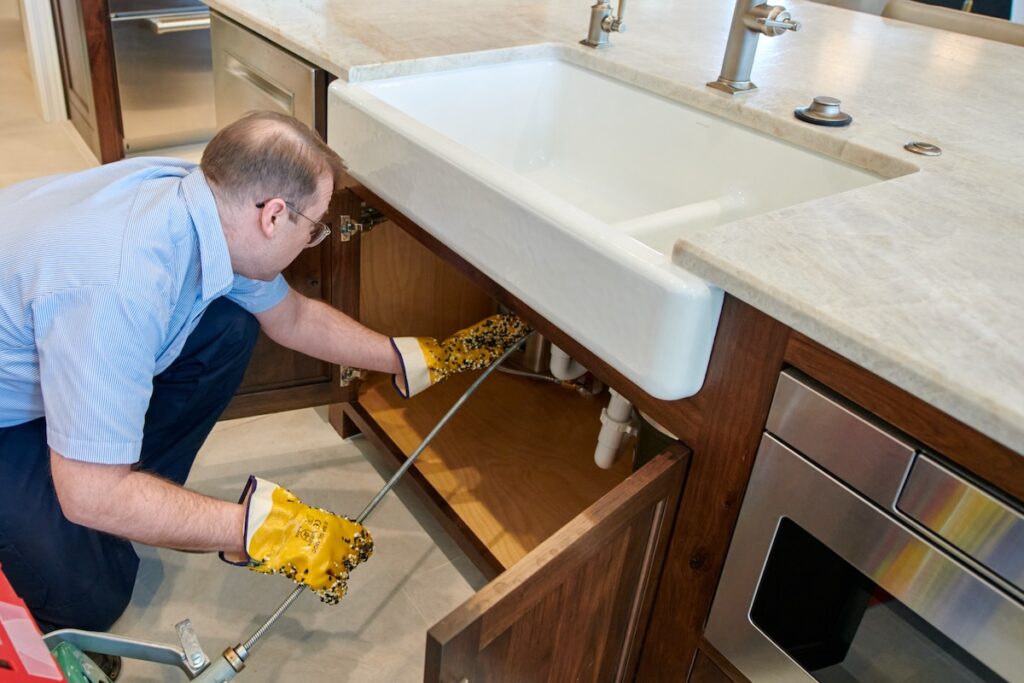BLOG
Humidifier for Asthma

The upside to having a good humidifier in your home is that you avoid dry air which can cause itchy skin, dry nose, sore throats, and the flu. Dryness is especially prevalent in the winter when cold outdoor air enters the home and is heated.
Not only can low humidity damage your body, but it can also damage the wood in your home and chip the paint/plaster.
Static shock also comes as a result of low humidity. If you walk across a carpet or slide off upholstered furniture in a dry climate, you’ll experience a zap when you touch metal.
Most importantly though, a dry home makes it much harder for those with asthma to breathe--that's where a humidifier for asthma comes in.
Whole House Humidification
With whole house humidification, a professional-grade humidifier attaches directly to the existing heating and cooling system. Whole house humidification allows water vapor to be sent directly to your system and distributed throughout the house through the ductwork.
A humidistat controls the humidifier to keep the desired amount of humidity maintained. This humidifier for asthma is the most ideal, because it requires the least amount of maintenance.
Whole house humidifiers are more convenient than portable units because you don’t have to install and maintain a humidifier in every room. Cleaning and filling humidifiers around your house can be a major waste of your time, and the energy bill is terrifying.
How Common is Asthma?
There are 22 million Americans who suffer from chronic asthma, and 30,000 people have an asthma attack each day. It’s the most common chronic disease among children, and 4,000 people die each year due to asthma.
Cool, dry air contributes to this problem, irritating nerves in the lungs which can lead to inflammation.
Asthma attacks are so terrifying because the affected individual literally feels as though they can’t breathe. This is due to constriction of the breathing muscles, suddenly-inflamed airways, and an increased amount of thickened phlegm.
Humidifiers help with asthma symptoms and prevent attacks by preventing a dry throat, nose and mouth.
In a nutshell, those with chronic breathing issues can rest in peace with a comfortable level of breathing. Even though nasal sprays and over-the-counter medications may help with breathing problems, only a humidifier for asthma can guarantee no additional side effects.
Types of Humidifiers
A steam vaporizer used to be the most common type of humidifier, but has lost popularity since you have to maintain the heated tank. It works by heating the water within until it boils and steam is released into the room.
This is ideal if you prefer a warmer humid environment, though you can also get a cool mist humidifier, which uses less energy since there’s no heating element.
You should consider the size of the room before buying a humidifier, as well as the style needed. A cool mist humidifier can handle a larger space than steam humidifiers. By installing a humidifier into your central furnace, you can add humidity to multiple rooms.
It combats the dry air exiting the furnace’s exhaust. This might help you save on the cost of multiple humidifiers.
There are three types of cool mist humidifiers—an impeller humidifier, ultrasonic humidifier, and a wick/evaporative humidifier. The impeller humidifier is a rotating disk that throws water on a diffuser, which in turn breaks water into fine droplets. The droplets leave the humidifier as a cool fog mist.
The ultrasonic humidifier is made up of an ultrasonic diaphragm which vibrates frequently to break down water into small droplets. The upside to this humidifier is that it’s silent.
A wick/evaporative humidifier is composed of a wick (filer that soaks up water from a reservoir) which provides a larger surface area for the water to evaporate. From there, a fan blows the air to speed up the evaporation.
Humidifier Maintenance
A humidifier’s maintenance is essential if you're getting a humidifier for asthma. If you don’t clean your humidifier regularly, it may grow mold, viruses, and other bacteria, making your asthma even worse.
You can maintain your humidifier by only inserting purified or distilled water, removing standing water when the humidifier is not in use, and rinsing it out every day.
Water with low mineral content prevents mineral build-up in your humidifier. If you’re going to store your humidifier, make sure the unit is fully dry first. Wash by hand to avoid introducing the tank to any harmful chemicals from soap.
Other factors go into how a humidifier for asthma can make a difference. What many don’t realize is that too much humidity can be just as bad as not enough humidity.
A hygrometer or humidistat determines the optimal humidity level for each room. If your humidity is above 45 percent, you’ve got too much humidity.
Expect rampant mold and fungi growth if high humidity continues. It’s imperative that you place your humidifier where it will have the greatest effect. Keep it away from draperies and furniture, and ensure the carpet and rugs near the humidifier don’t become too damp.
Dampness can cause bacteria or mold growth. Other tactics can be utilized to help with asthma, including adding some liquid menthol to the humidifier, keeping your home clean and dust-free, avoiding fragrances/strong odor products, and not smoking.
You should change the humidifier filter on a regular basis, and change the filter in your central air conditioning and heating system. The great thing about a whole-home humidifier is that it’s low-maintenance and the you can easily control the level of humidity in your home from a humidistat or compatible thermostat.
Asthma Effects
Occupational asthma comes from inhaling fumes, gases, or dust from the environment. Childhood asthma, on the other hand, impacts millions and is typically diagnosed before the child reaches the age of five.
Common symptoms of asthma include wheezing, shortness of breath, chest tightness/pain, chronic coughing, and trouble sleeping due to coughing/wheezing.
These symptoms might flare up more when you’re exercising, when you have a cold, or when you’re especially stressed out. Non-allergenic triggers could be smoke, pollution, and cold air/changes in weather. Not only must those with asthma suffer from triggers that can bring on asthma attacks.
They also are more susceptible to developing complications from respiratory infections (ie: influenza or pneumonia). Since asthma is incurable, it’s an issue that you learn to live with.
A humidifier for asthma is an essential step you can take to ensure that asthma doesn’t affect you in your home. A treatment plan of specific medications and annual vaccinations aid in this process.

Helping with Asthma
On top of installing a home humidifier, you can also prevent asthma attacks by ensuring you have proper home insulation (keeps come at a consistent temperature) and sealing up any cracks in your home to stop dry air from entering your home.
You can also dry your laundry in enclosed spaces close to a heat source. Avoid large vapors of chemical substances found in clothes and detergents. Ideally, though, the most important thing is to keep the level of humidity in your home between 30 and 50 percent.
The driest cities in America include Madison, WI, Ogden, UT, Salt Lake City, UT, Minneapolis, MN, Tucson, AZ, Phoenix, AZ, Las Vegas, NV, Denver, CO, Colorado Springs, CO, and Albuquerque, NM.
If you live in one of these cities and have asthma, it’s especially important to take the proper precautions to prevent asthma attacks in your home. The most prevalent time for asthma attacks is the fall, since several viral and bacterial infections grow during this season.
Humidifiers Do it All
A humidifier for asthma also has other upsides. For example, it helps heal sinusitis. Overly dry air can cause the sinuses to not drain properly, resulting in your runny/stuffy nose. As if that wasn’t enough, a humidifier can also help you heal faster by keeping your nasal passage lubricated, speeding up the healing process when you’re not doing well.
You can even get one specifically designed to help with allergens. If you have messy nose bleeds all the time, a humidifier can help with that too. Snoring can be a pain, and a humidifier keeps the throat from drying out too much.
Buy a humidifier as a (passive-aggressive) gift for a loved one if their snoring keeps you up at night. Finally, a humidifier gives you beautiful skin without you having to moisturize every day. Supple skin and non-chapped lips are a guarantee.
Types of Home Humidifiers
Certain house humidifiers are less expensive and easier to install, while others give you more control of your desired humidity. When choosing a humidifier for asthma, consider which of these types will work best for you.
A drum home humidifier is the least expensive and easiest to install. According to Home Improvement, these types “install on your cold air return line, and use a motor and belt to essentially lift cold water from a drum into the air and let evaporation and the passing air movement pick up the moisture”.
However, they also require some maintenance, and the standing water in this model can create mold if the water isn’t changed out regularly. You might also have to replace the belt pretty frequently.
A flow through humidifier are middle of the road in terms of cost and quality. They also use evaporation, but there is NO standing water to worry about. The filter is where the water flows through and the air blows through the filter. No electricity is used, but it does require a water line is constantly uses new water.
A mist/steam humidifier, though the most expensive, is also the most efficient. It produces steam instead of relying on evaporation, and allows you to easily control the desired humidity.
A humidifier for asthma is the very best option to prevent attacks and ensure you get a good night’s sleep. Whole house humidification means you don’t have to worry about maintenance, and you can set the humidity level to your exact specification. Contact Anthony today to learn more about home humidifiers and to get your's installed.




